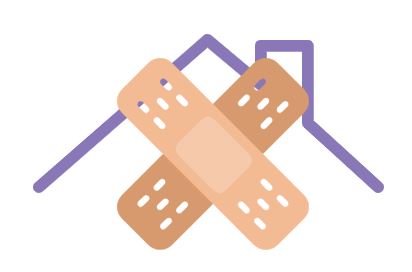 This week saw two more meetings of the Standing Committee on the Status of Women for its study on VAW shelters and transition houses.
This week saw two more meetings of the Standing Committee on the Status of Women for its study on VAW shelters and transition houses.
The third meeting, on Monday, October 22, was broken into two one hour slots with two witnesses each. The first hour saw witness statements from Bonnie Brayton, National Executive Director of DisAbled Women’s Network Canada and Arlene Hache, Community Advocate. The second hour consisted of two witness statements with four people present: Martina Jileckova (CEO) and Lisa Litz (Director of Stakeholder Relations) from Horizon Housing Society and Jeff Morrison (ED) and Dominika Krzeminska (Director, Programs and Strategic Initiatives) from Canadian Housing and Renewal Association.
The fourth meeting, on Wednesday, October 24, was the first time front-line staff from VAW shelters/transition houses appeared in front of the Committee. The first hour consisted of witness statements from Kristal LeBlanc, Executive Director of Beausejour Family Crisis Resource Centre, and Jennifer Lepko, CEO of YWCA Lethbridge and District (a WSC associate member). An additional half hour was given for a witness statement via videoconference by Lyda Fuller, Executive Director of YWCA NWT (which is a full member of WSC; Lyda is also a member of our Board of Directors).
The two meetings could not have been more different. In Monday’s meeting, Jeff Morrison of CHRA repeatedly described VAW shelters and transition houses as “band-aid solutions.” When asked if there was one final thought he would want the Committee to include in its report, he said: “With the greatest of respect to this committee, I would suggest you change the focus of it. As we discussed, shelters are important and they play a role, but they are a band-aid. Shelters, especially for women fleeing violence should not be seen as a solution. They should be seen as a step along the way…We need to find the permanent fixes. Rather than trying to treat the disease, let’s cure it. We do so by providing that access to safe affordable housing and increasing the supply of it alongside with the supports to it. I hope that this committee will recognize that in your final report, that for the long-term, that that’s really what the solution needs to be.”
During that entire meeting, there was no mention of misogyny or toxic masculinity and how they are the underlying causes of the need for shelters. All the affordable housing in the world will not prevent violence against women until those underlying systems change. Arlene Hache used the example of a recent fire in Yellowknife to demonstrate that shelters are not really useful. She said all the families have now been re-housed in private market housing and she wonders why they weren’t there in the first place? What was not presented to the committee was the fact that those families are now paying $600 more per month for that housing – money they do not have – and there have already been safety concerns with former partners requiring RCMP involvement.
This was in stark contrast to the meeting on Wednesday, where front line shelters finally had the opportunity to have their voices heard. All three organizations spoke to the importance of the programming VAW shelters provide, that long-term housing does not, for women who are traumatized, suffering from traumatic brain injury, dealing with mental health issues or substance abuse, going through legal proceedings, etc. The risk women face when they leave a relationship – and the chance of lethality – was also stressed and we hope the Committee heard these concerns. As Jennifer Lepko of YWCA Lethbridge said, “If you simply build more places to live and do not adequately support the individuals, there will not be success…We need to provide safety and ongoing support.” During the Q&A, she went on to explain that “These women and children are being hunted, in many cases…so not only do we need to put the supports in place, but we need to make sure that there is adequate safety as they move forward. Fleeing violence is the most dangerous time for women and children.” She also directly challenged the band-aid comments from the previous meeting, stating, “The idea of the shelter is to provide that initial emergency support. Shelters are not just a band-aid. They are a very significant piece. They’re about a woman and children being able to, literally, regroup and figure out what is happening next.”
During Monday’s meeting, it was very disheartening to see that some of the political parties have made strategic decisions about how to interpret the mandate of this study. For some, it seems that there has been an explicit strategic decision to interpret a focus on shelters and transition houses as being literally about shelters as a form of housing and as a physical space. This focus serves both to deflect/distract from any discussion around systemic or policy changes on violence against women and to refocus the discussion on the most market-oriented/based “solution” – housing.
Again, there was an attempt to bring this up, but the Chair dismissed the concerns saying, “Although I recognize it may not be specific to shelters, we need to look at housing as an entire link and whether we’re looking at markets or whether we’re looking at shelters, that they are all part of the same package. I will allow the continuation of these questions.” Additionally, another MP scolded Bonnie Brayton for not sticking to the topic of the study because she was speaking about traumatic brain injury and the importance for shelters to screen for that on admission. Bonnie held her own, saying “It’s important to understand that it’s not going to work across the country to say that what we’re going to focus on is beds.”
Of course Canada needs more safe, affordable housing for women and their children after they leave shelters. We know that one of the reasons shelters have to turn women away for lack of space is because the women who are in the shelter have nowhere else to go after. However, simply building more houses without supports for women and children escaping violence is not the solution. Both are needed.
Wednesday’s meeting was fortunately directly focused on what this study is about – VAW shelters and transition houses. For example, when asked what she would recommend to the government, Kristal LeBlanc of Beausejour Family Crisis Resource Centre said, “Core funding is always something that women’s organizations will fight for across the country…At the end of the day, we can’t do our jobs effectively if we don’t have that core funding…First and foremost, core funding, and also what’s being done today, listening to experts who actually work in the field and deal with clients.” This is also what WSC advocates for.
Meeting 3: Listen to the audio of the full 2 hour meeting here
Meeting 4: Listen to the audio of the full 1.5 hour meeting here

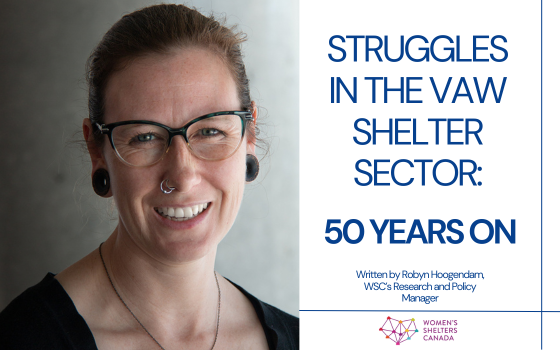
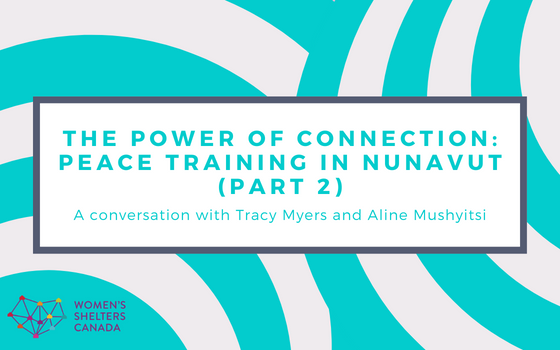
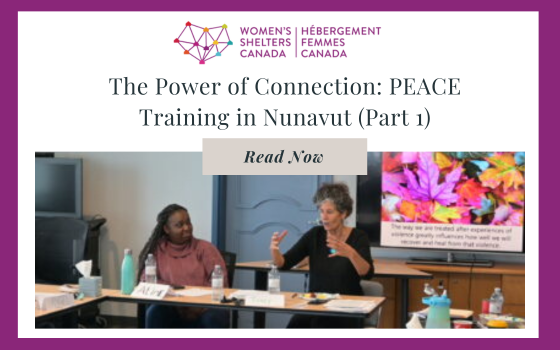
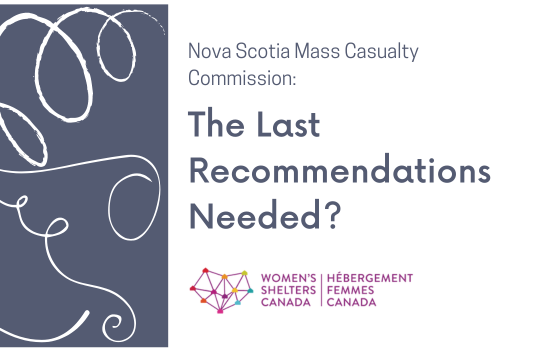
Leave A Comment
You must be logged in to post a comment.